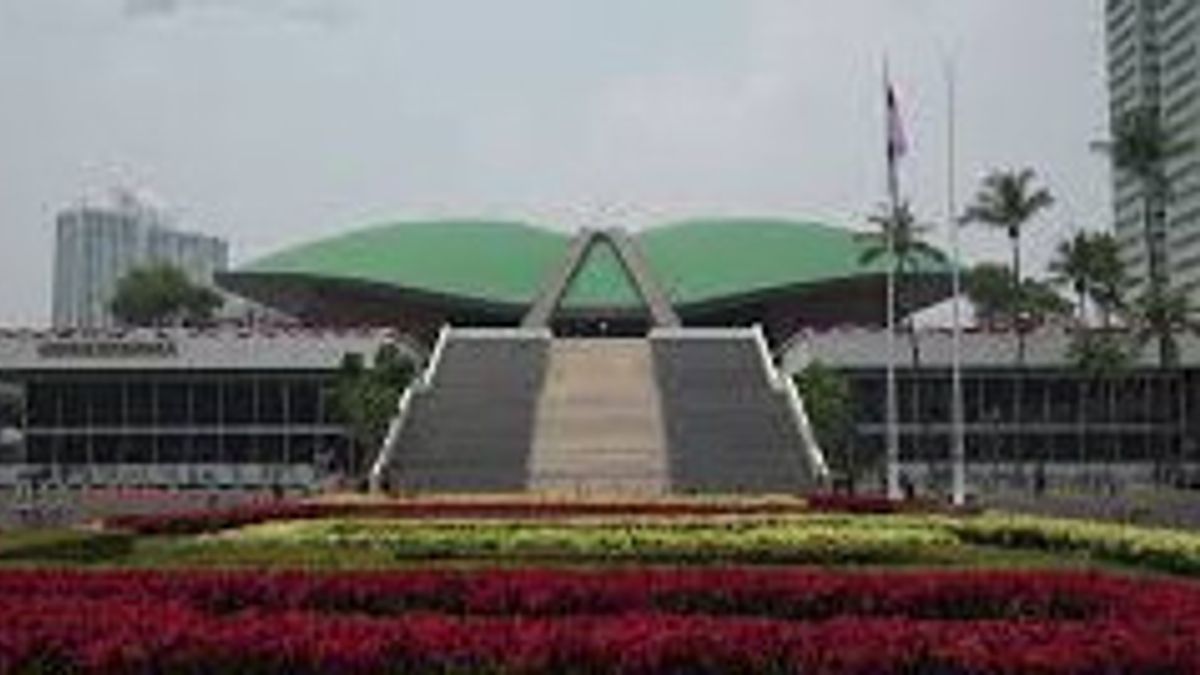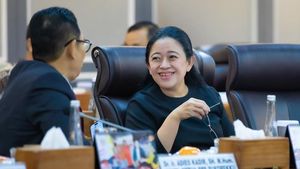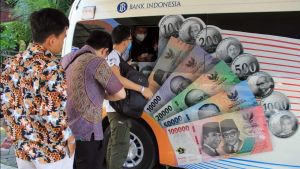JAKARTA - Commission II of the DPR RI is currently drafting a Draft Bill (RUU) for the upcoming 2024 General Election. This bill is part of the National Legislation Program (Prolegnas).
There is one article that makes a number of parties participating in the 2019 election that did not pass the parliament "scream". This is because Article 217 of the Election Bill states, the parliementary threshold or parliamentary threshold is planned to increase from 4 percent to 7 percent in the 2024 elections.
The parliamentary threshold in the previous election has also increased. In 2009, the parliamentary threshold was 2.5 percent of the number of valid votes, in 2014 it rose to 3.5 percent, and in 2019 it was 4 percent.
The plan to increase the threshold was rejected by a number of parties, namely the Berkarya Party, PBB, Hanura, Perindo, PSI, PKPI and the Garuda Party. Secretary General of Perindo Ahmad Rofiq considers that the increase in the parliamentary threshold is a threat to the democratic process. The increase in the parliamentary threshold will further reduce their chances of passing the legislative election.
"It is obvious that we all missed it. It is not clear when the academic study was, when was the preliminary discussion, uh, suddenly it has become a prolegnas in the DPR RI. Priority again! Quick work! " Rofiq told reporters on Sunday, June 7.
In addition, PKPI Secretary General Verry Surya Hendrawan said that he would voice the rejection of the parliamentary threshold to the Indonesian Parliament. This rejection was also supported by the three parties that passed the 2019 elections, namely PAN, PPP and Democrats.
"Of course also (communication) with the friends of the DPR RI who proposed it. Immediately we schedule a meeting. God willing, we all only want the best for this beloved nation and country," said Verry.
Meanwhile, Deputy Director of Perludem Khoirunisa Nur Agustyati thinks that the parliamentary threshold need not be raised to 7 percent. What he is worried about is that there is no harmony between the legislative and executive elections.
"If the threshold is getting bigger, we are worried that it will run separately, so the political parties will certainly save first, the important thing is to pass this large threshold, the important thing is to pass the 7 percent threshold first," said Khoirunisa.
In fact, said Khoirunnisa, the aim of having simultaneous elections between the executive and the legislature is to create a coat tail effect, in which the support of presidential candidates is in line with the votes of the party that carries them.
However, Khoirunisa views that harmony will fade when parties are busy raising the electability of their respective legislative candidates and ignoring presidential candidates.
"Of course it is psychologically that this will take precedence (to save the threshold) and this is what causes it to not go hand in hand between these two elections, even though one of the goals of the simultaneous election between the executive and the legislature is that there is harmony through the tail-tail effect which then has an impact on the election results. , "he said.
The threshold is still negotiableDeputy Chairman of Commission II of the DPR RI, Saan Mustopa, said the plan for a parliamentary threshold of 7 percent was not certain to be implemented because it was still a general description of the factions' proposals in the DPR, particularly the Golkar and Nasdem factions. Meanwhile, there is another alternative to PDIP, which is to make it tiered.
"The second alternative, there is 5 percent for the DPR RI, 4 percent for the Provincial DPRD, 3 percent for the Regency / City DPRD. So, from the national, provincial, regency / municipal levels the parliementary threshold is different," said Saan.
Another suggestion, said Saan, is that the parliamentary threshold for the DPR RI is 4 percent, then for DPRDs in provinces and districts / cities 0 percent. This proposal was submitted by PPP, PAN, and PKS.
"Of course, later when the discussion is going there will be dynamics and I'm sure there will be common ground," he said.
The English, Chinese, Japanese, Arabic, and French versions are automatically generated by the AI. So there may still be inaccuracies in translating, please always see Indonesian as our main language. (system supported by DigitalSiber.id)













